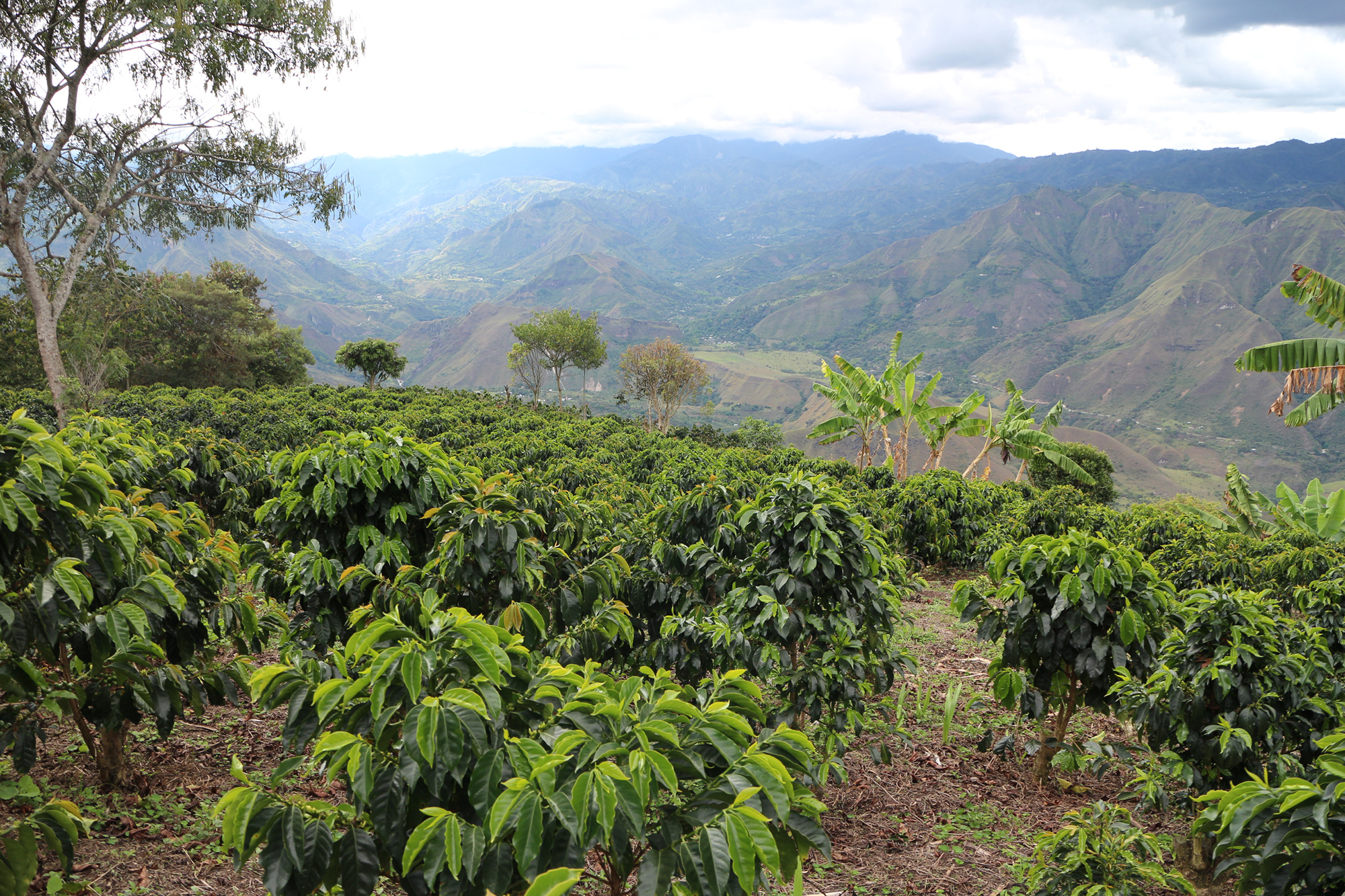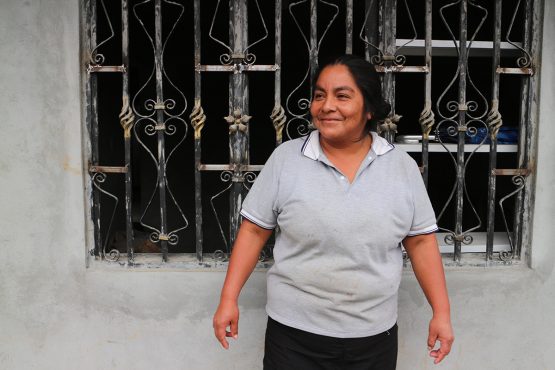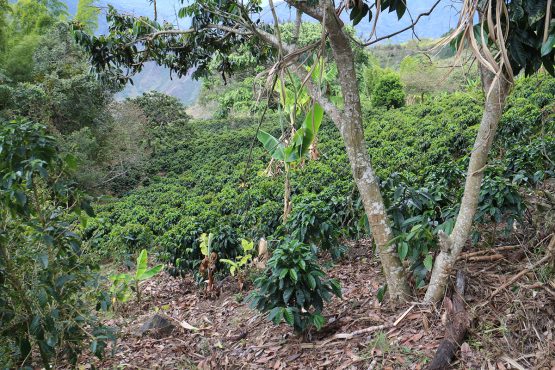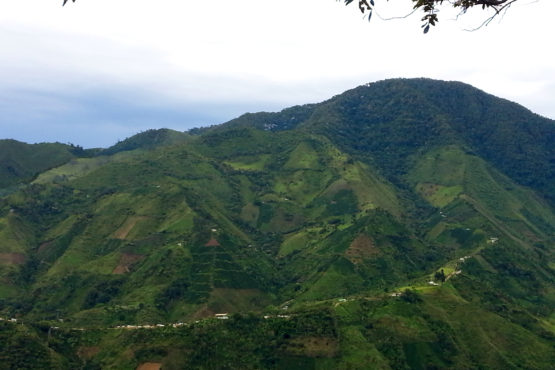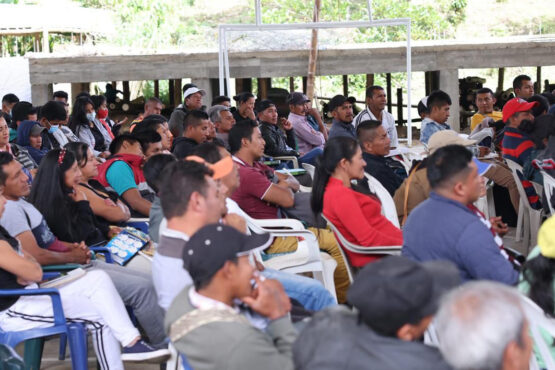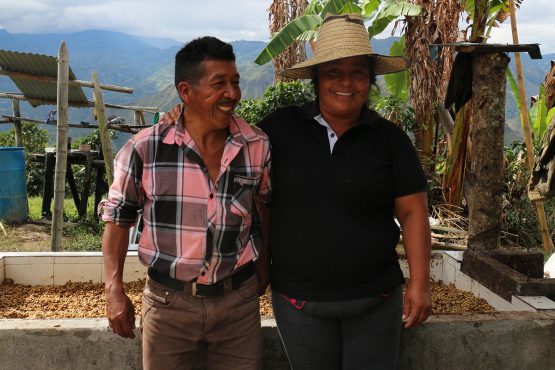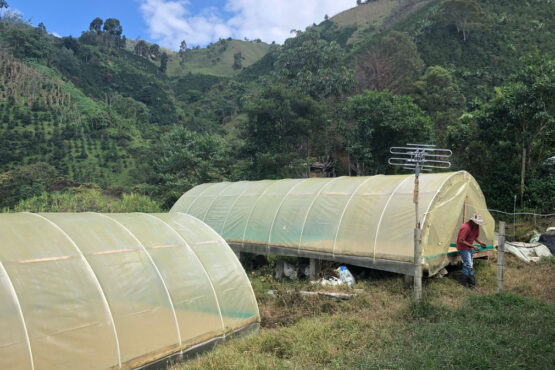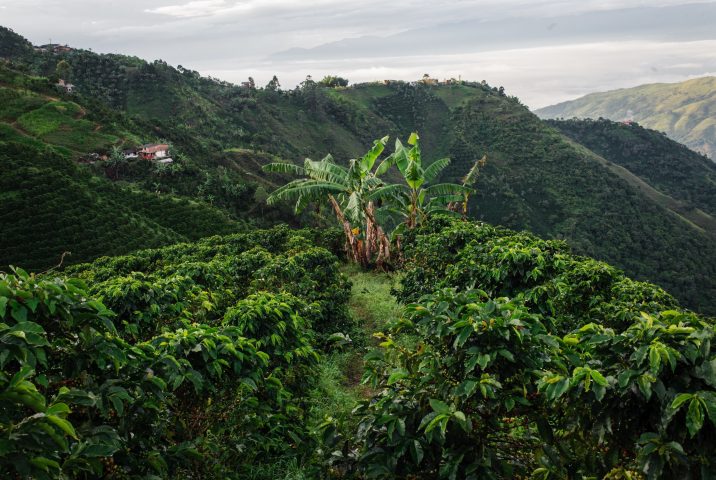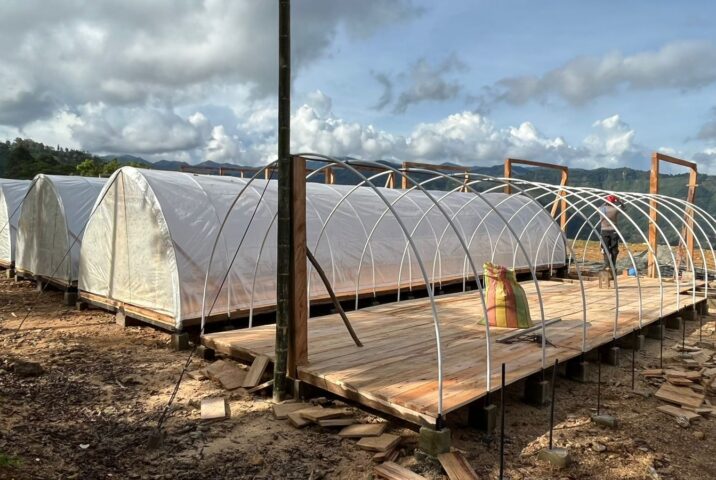El Totumo
Fruit forward and complex, with green apple acidity and panela sugar sweetness. Caramelised citrus, mandarin and dark chocolate.
This coffee was produced by Luz Mila Mazabuel and her husband John Elver on their small farm, El Totumo, located near the town of San Jose, in the municipality of Inzá in the state of Cauca, in Colombia’s south.
At 4 hectares in size, El Totumo (which translates to “the calabash tree” in Spanish) is a fairly large farm for the region (most average just 1-1.5 hectares!). The farm is located at 1,900m above sea level, in the steep, rugged hills that surround San Jose. Luz Mila, her husband and her children are a prominent coffee-growing family in the region and have been in business for over 27 years. The family have been a part of Pergamino’s Allied Producer Program for five years.
The duo’s success has allowed them to expand their farm and plant more coffee trees, resulting in a higher volume produced year-on-year. This increased volume has created some complications for the family – in the last couple of years they have had to use some of the space in their home to finish the drying of their coffee! This year, Luz Mila and her husband plan to invest the premiums they have earned for their coffee in building more drying beds at the estate.
El Totumo is mainly planted with the Caturra variety, which was the most popular variety during the 1970s and 1980s when most local farms were established. In recent years, Luz Mila and John Elver have also introduced hybrid varietal Colombia, as part of the country’s efforts to reduce the incidence of coffee leaf rust without affecting cup quality. Dona Luz Mila farms her coffee with traditional techniques and most of the labour is provided by her and her family. Fertilisation occurs around three times a year, usually after manual weeding, and pesticides are rarely used.
Like most of the nearby towns, San Jose has breathtaking views of Colombia’s highest volcano, Nevado del Huila, which sits at the point where the states of Huila, Tolima and Cauca meet. The rich, volcanic soil of the area makes it ideal for agriculture and contributes to the excellent cup quality of coffees grown and processed here. Cool overnight temperatures result in dense beans, which are notable for their sweetness and complexity. Lower temperatures and high rainfall also influence processing techniques, with longer ferment and drying times being necessary.
ABOUT INZÁ
The municipality of Inzá is located in the corner of the state of Cauca, bordering with Tolima and Huila and looking out to the west over the Pacific Ocean. This region has excellent conditions for growing high-quality coffee, with high elevations and rich volcanic soil. The plateau has very stable climate year-round thanks to its proximity to the equator and the surrounding mountains, which protect the coffee against the humidity of the Pacific and the trade winds from the south. This region is an important source of water and wildlife, in addition to being prime coffee-growing land.
Coffee from Cauca has historically been very difficult to access due to the region’s isolation and instability. For many years this part of Colombia was under the control of Colombia’s notorious rebel group, the FARC, and as a result, it was unsafe and violent. Since 2012, safe access to this region has been possible as a result of peace talks between the national government and the rebels. Thanks to these efforts, more and more stunning coffees from small producers in the region have become accessible.
Our export partners for this coffee, Pergamino, have worked hard commercialise specialty-grade coffee throughout Cauca, and are now able to source some stunning coffees from very dedicated producers. They work closely with the producers to give them feedback on their coffees (provided by Pergamino’s expert team of cuppers) and provide top up payments when the coffee is sold at a higher premium.
Head here to learn more about the work of Pergamino.
HOW THIS COFFEE WAS PROCESSED
The coffee in this lot was selectively hand-harvested, with most labour being provided by Luz Mila and her family. It was processed using the washed method at the farm’s ‘micro-beneficio’ (mill).
The coffee was pulped using a small manual or electric pulper and then placed into a fermentation tank, where it was fermented for up to 80 hours (depending on the weather and the farm’s location) and then washed using clean water from nearby rivers and streams.
The coffee was then carefully dried (over 10–18 days) on parabolic beds, which are constructed a bit like a ‘hoop house’ greenhouse, and act to protect the coffee from the rain and prevent condensation dripping back onto the drying beans. The greenhouses are constructed out of plastic sheets and have adjustable walls to help with airflow, and temperature control to ensure the coffee can dry slowly and evenly.
Once dry, the coffee was delivered to Pergamino’s warehouse in Medellín, where it was cupped and graded. Once approved, coffee rested in parchment until it was ready for export.
